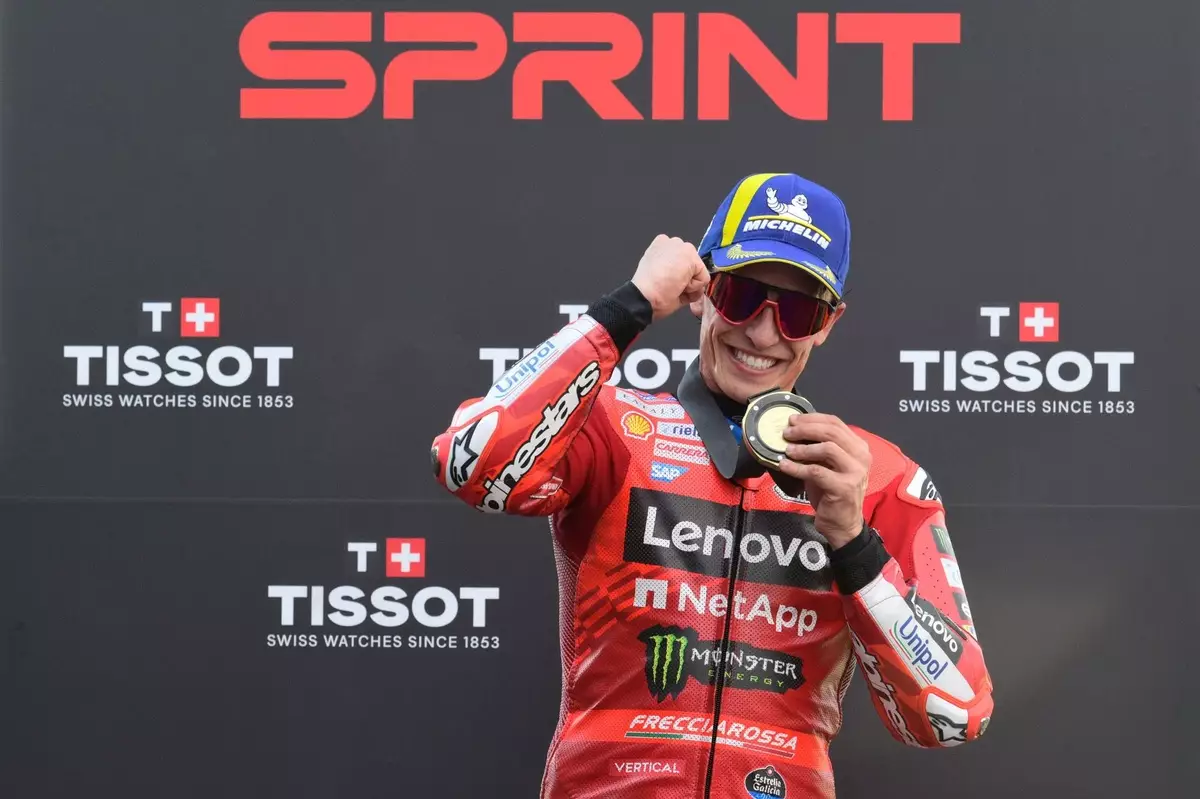Marc Marquez’s recent triumph in the Thailand Grand Prix sprint race has generated widespread excitement among fans and commentators alike. Yet, unlike many athletes who bask immediately in their victories, Marquez has exhibited a remarkable level of restraint and caution. He celebrated his lights-to-flag win with not just joy but a profound understanding of the volatility of the MotoGP world. This nuanced reaction opens a dialogue about the pressures that elite athletes face and the strategies they employ to manage expectations, both from themselves and their supporters.
In an era where immediate gratification often overshadows thoughtful reflection, Marquez’s approach stands out. Winning the sprint by over a second against the likes of his brother, Alex Marquez, and fellow competitor Francesco Bagnaia shows his skill, yet he refrained from getting swept up in the euphoria of victory. Instead, he articulated a complex emotional landscape, acknowledging the role of high expectations while emphasizing that one win does not redefine the competition landscape. Such mature sentiment highlights the difference between a seasoned champion and a rookie in any sport.
The weight of expectations can be both a blessing and a curse. For Marquez, who has already secured six world championships, the collective hopes resting on him can be burdensome. While fans anticipate greatness, athletes often grapple with anxiety around meeting those expectations, and Marquez appears particularly attuned to this. His acknowledgment of the potential dangers of excessive pressure—both self-imposed and externally driven—reflects his evolving mindset as a veteran of the sport.
In his own words, a mental shift has occurred. Marquez no longer views his victories merely as personal achievements but as affirmations of a lifetime of work and resilience. By choosing not to succumb to the noise that comes from the support of friends and fans—who may think he can sweep every race—he displays a maturity that is essential for longevity in a physically and mentally taxing sport like MotoGP. This self-awareness allows him to remain grounded even amidst success.
Marquez’s performance in the Thailand Grand Prix illustrated a tactical mindset that goes beyond sheer speed. Managing the race from the front while keeping a calculated distance between himself and his competitors is a testament to his years of experience. He has learned that racing isn’t just about going fast; it’s about knowing when to push the limits and when to hold back for the greater good of the race, or, in a broader sense, the championship.
His comment that there is little difference in winning by one second versus three underscores a critical aspect of motorsport strategy—consistency matters more than the margin of victory. This mentality is crucial, especially at the beginning of the season, where one excellent race could be quickly undermined by subsequent missteps if not managed properly. The risk of running too hard too early can lead to detrimental errors, something that Marquez seems keenly aware of and intentionally avoids.
As the MotoGP season progresses, Marquez’s cautious optimism should serve as a reminder to fans and followers that perfection is an evolving target. While he used the Thailand Grand Prix sprint as a springboard for success, he remains acutely aware of the unpredictability of racing. This awareness extends beyond just his performance—he acknowledges the unpredictability inherent in sports overall, emphasizing the need for focus and consistency amidst competition.
The lessons learned from this sprint and the expectations surrounding it will carry forward as the season unfolds. Marquez has set the stage for what could be a compelling year in MotoGP, one where he intends to ride strategically and deliberately manage the pressures of his sport. Thus, even as he celebrates, he remains bound by an understanding that sport can change dramatically from one day to another. His insights provide a rich perspective on the mental fortitude required to remain at the top of one of the most competitive arenas in the world.


Leave a Reply